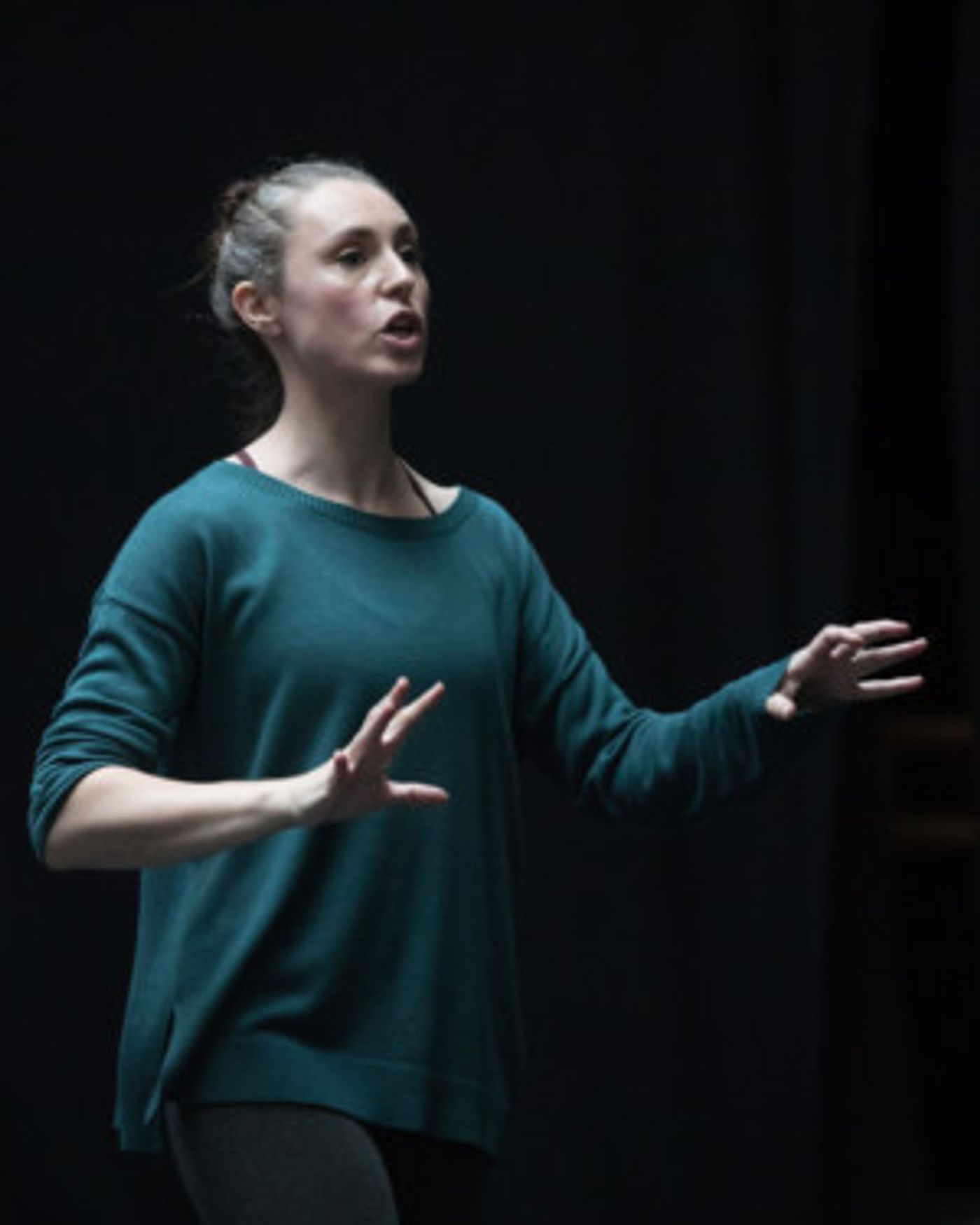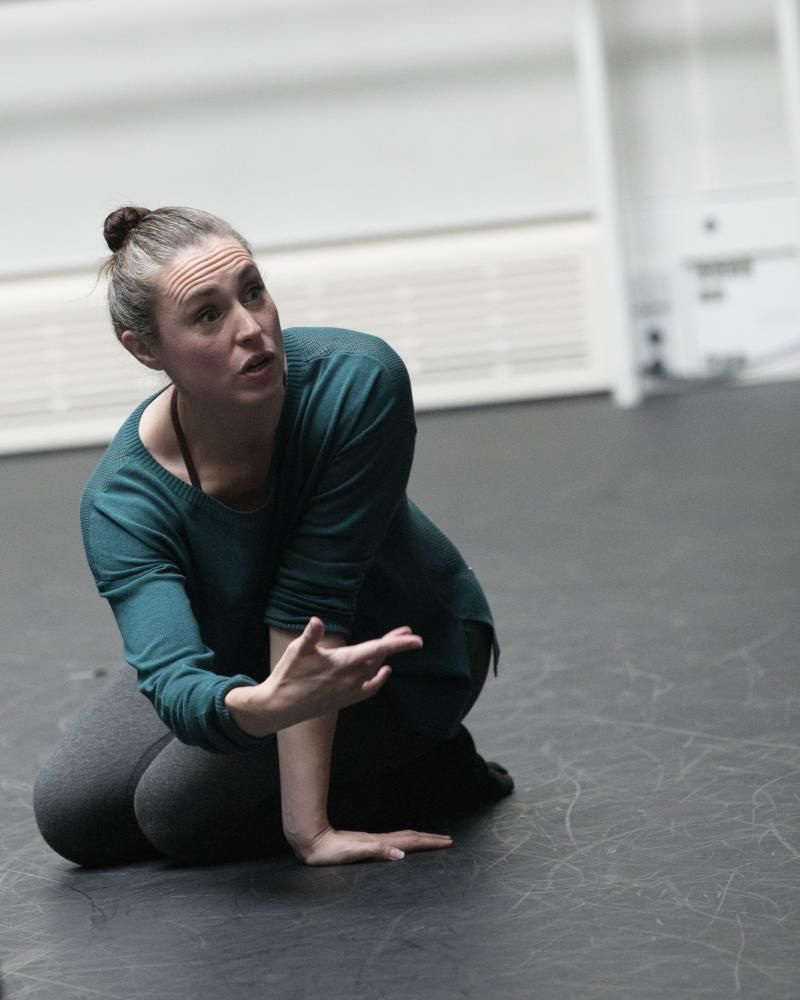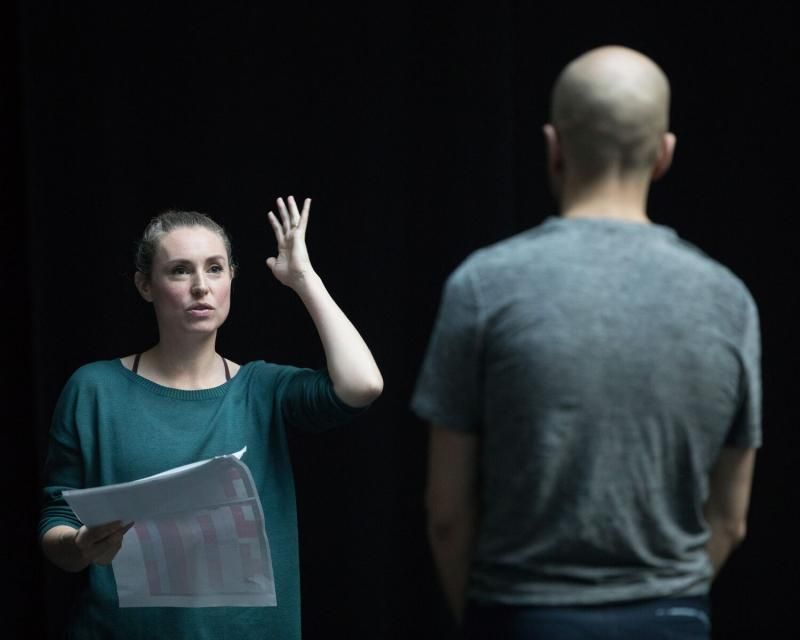Interview: Anna Morrissey Talks A MIDSUMMER NIGHT'S DREAM at the Nevill Holt Opera

Anna Morrissey talks about Britten's A Midsummer Night's Dream, which opens the Nevill Holt Opera's 2019 Festival tonight and marks her debut as a director.
Tell us about the Nevill Holt Opera
The Nevill Holt is based in Leicestershire, and last year it opened a fabulous new 450-seat theatre that's won some awards. It's a very intimate house - everyone gets a good seat with a good view.
This year's Summer Festival has A Midsummer Night's Dream (that I'm directing) and Cosi Fan Tutte. You can come to the opera and bring picnics to enjoy in the beautiful grounds during the interval.
Is it a similar vibe to Opera Holland Park?
Yes, but maybe closer to Glyndebourne - Opera Holland Park has a shorter interval.
Here you enjoy the whole experience - the work, but also the beautiful settings with its sculptures etc. It's a more "festival" atmosphere.
What happens at the theatre outside the Summer Festival period?
I'm a freelance, so no expert on this, but I know that they hold recitals and they do a lot in education outreach.
For this production, Nick Chalmers, its conductor. and I have done a mini Midsummer Night's Dream education project. We've taken it to local schools, with children who may not have seen or heard opera, some of whom may not get drama lessons,
They've learned how to sing parts of the opera and how to act in a 30-minute condensed version which they perform on the main stage at Nevill Holt.
Is it a hard sell (opera and Shakespeare)?
Nick and I are so passionate about what we do - I've worked at the RSC for a long time and my last show was at the Globe. Nick feels the same about the singing and we both have experience of delivering educational workshops.
It's less of a problem than you might imagine, as it's play-based and a lot of fun! They're singing and moving and playing games. Even if it has a "high culture" label, when you're working with the material, it's fun and we love doing it.
Though you're teaching very fresh people, I rarely encounter anyone who is negative about it for its own sake - it's just a lack of familiarity. These are great works of art, after all - as human beings, we just respond to it. So much is about the environment you create in the room that day. The baggage can all go away, if you have all the logistics sorted out.

You're a movement director - what's involved in that role?
It's a really broad umbrella term, movement, that encapsulates lots of things and it's different every time. On a production, the movement director takes care of the physical elements of the play.
Take The Tempest. Shipwrecks are hard to stage, so you're thinking about what might represent that. It's not necessarily choreography - where there's levels of stylisation involved, the movement director is involved.
If plays have set-pieces within them - say a large banquet scene, or a nightmare - they would be your staging. You would work closely with the director, of course. You might work closely with a particular actor on a movement issue, maybe showing how to inhabit different characters for a cast with lots of doubling. If you stylise violence, you might stage that, but not actual fights.
You also take care of "the world of the play". I did Queen Anne in the West End, so we looked at the way people deported themselves in that period - curtsies, sitting, dancing. I've just finished Emilia in the West End, in which movement informs staging, with lots of transitional work from one scene to another. Essentially, you're feeding the physical life of the production.
I tend not to do film, though I've done a tiny amount of music video stuff, but I mainly do theatre. I've had actors with whom I've worked ask for a little help with specific things.
What are the challenges of directing your first opera?
There are similarities, because you're working on staging all the time (and as a movement director, you're always given the difficult bits!). I've felt really happy in the rehearsal room with opera singers - it's a really fantastic cast who are so dynamic. So that's felt familiar in a way, not wildly different.
As director, you obviously have a lot more responsibility - for instance, you're involved in casting. I cast the singers in collaboration with Nick, of course; the singing taking more precedence than it would in a theatre process. Learning how to meet people quickly in singing auditions, when you don't get to see how they move, has been something that's new to me.
The design process is new too - in it from the absolute beginning, taking ideas from the very start to realisation. We have a brilliant designer, Simon Kenny, who worked here last year, so that's been a big support.
They're the main things, but much feels familiar from my experience as a movement director. I've done a lot of big planning projects too - I did something for the Tower of London with lots of logistics stuff, so that has been useful. But I've certainly been on a learning curve! And I've really been enjoying it too. Ultimately, as a director, you're driving all the processes simultaneously.

As director, are you the final court of appeal when the inevitable tensions arise between creative people?
Yes, you do have more final say. If something isn't working, you have to say "We're not doing this" or "We are doing that". You may have to make some tough calls.
In opera, you're doing that with the conductor, and Nick and I have worked a lot together and have enjoyed those times together. He, as artistic director, is also running the company, so I don't have to do too much managerial stuff to worry about. My job is to deliver the production.
What can the audience expect from this production of A Midsummer Night's Dream?
We've tried to make a really poised production between the comedy and the dark elements of the work, without bringing everybody down. We've made it psychologically driven, about character rather than concept.
We've tried to honour what Britten has done with the story - he takes it all into the course of one night. It happens in the space of a single pass of the Moon over the Earth, so we've kept that "in the night" atmosphere and the Moon features heavily in our thinking.
It's a forest of dreams that the mortal characters walk into and, in it, they exorcise the darker sides of their psyches. Jungian thought tells us that the forest is where we go to explore what we have repressed, left unexplored. So these characters - in a non-literal sense - are going into the forest to explore what it would be like to fall out of love, to fall in love with the wrong person, to try to rehearse a play in difficult circumstances.
So a central theme is that play on dream language and dream logic - what we do when we go to sleep and our psyches go to work. We've also tried to be bespoke to this space, with a really dynamic staging around the auditorium - it's fun! Though, of course, it's up to the audience to decide if that's so, but I hope that we've honoured the comedy as well as the story, with its darker gender politics.
What's next for you?
I movement directed Brian Friel's Translations, which is coming back to the National, so I'll be doing that, and as a choreographer, I'm doing the Christmas show at Stratford East. I'll be doing The Turn Of The Screw at the Royal Opera House next year as movement director.
I've had a busy, busy year this year and I have two young children, so I want to spend some time with them.
I've shows on the horizon and I'd like to direct more - and then, who knows?
A Midsummer Night's Dream is at the Nevill Holt Opera until 16 June
Photo credit: Bessell Photography

Videos

